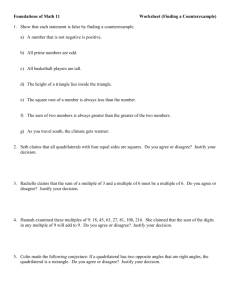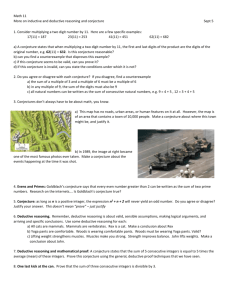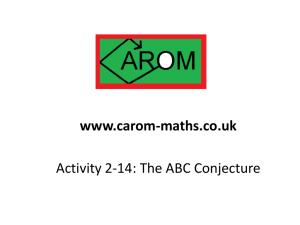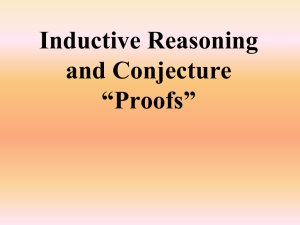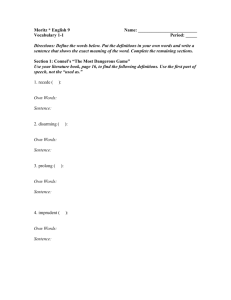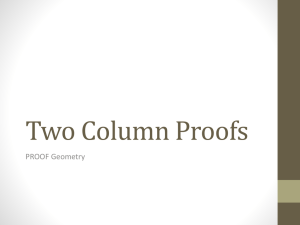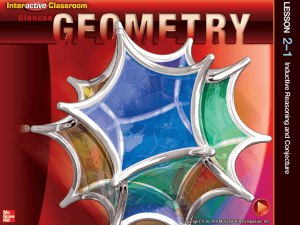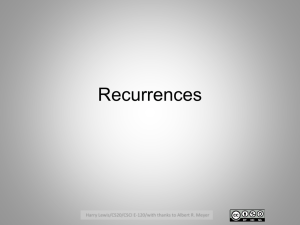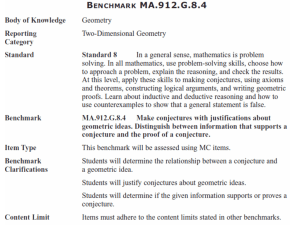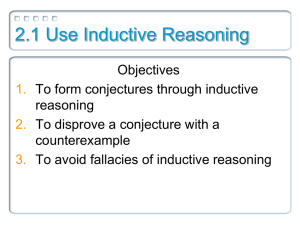2-1 Inductive Reasoning and Conjecture
advertisement
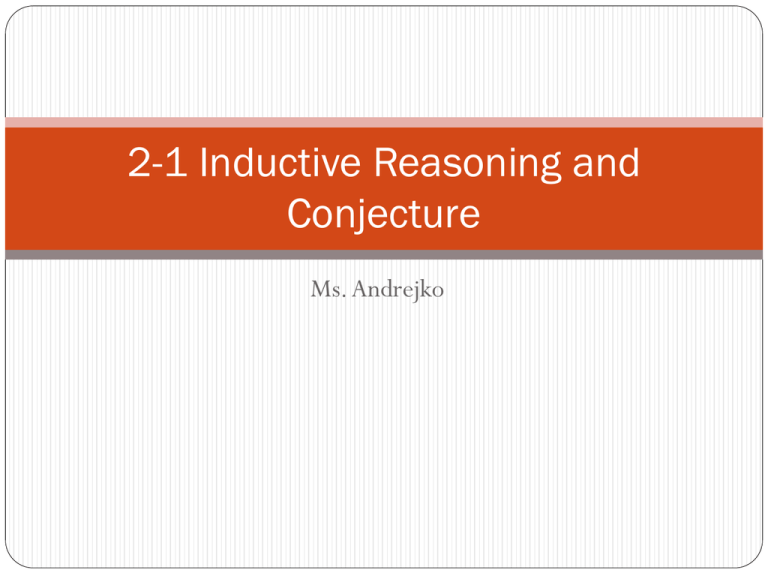
2-1 Inductive Reasoning and Conjecture Ms. Andrejko Real - Life Vocabulary Inductive Reasoning- reasoning that uses a number of specific examples to arrive at your conclusion Conjecture- a concluding statement reached using inductive reasoning Counterexample- a false example that can be a number, drawing, or a statement. Steps to making a conjecture 1. Find a pattern in the sequence that you are given, or write out examples to find a pattern based on what you are given. 2. Write the pattern that you have found in the form of a conjecture. IF GIVEN A CONJECTURE: Find a counter example, to prove that it is false Examples 1. Conjecture: Each figure grows by increasing by 2 shaded diamonds and 1 shaded diamond. The next figure will have a total of 8 shaded diamonds and 5 white diamonds. 2. -4, -1, 2, 5, 8 Conjecture: Each number is increasing by 3 every time. The next number will be 11. 3. -2, -4, -8, -16, -32 Conjecture: Each number is two times as many as the previous number. The next number will be -64. PRACTICE 1. Conjecture: Each figure grows by 2 dots each time. The next figure will contain 12 dots (5 on each side, and one on the top and bottom) 2. -5, -10, -15, -20 Conjecture: Each number is decreasing by 5 more each time. The next number in the series will be -25. 3. Conjecture: Each number is being multiplied by - ½ . The next number will be 1/16. Examples – Make a conjecture about the geometric relationships 4. N is the midpoint of QP Conjecture: QN ≅ NP 5. <3 ≅ <4 Conjecture: < 3 and < 4 are vertical angles 6. <1, <2, <3, <4 form 4 linear pairs Conjecture: <1 and < 3 are vertical angles, <2 and angle 4 are vertical angles 4 1 3 2 PRACTICE– Make a conjecture about the geometric relationships 4. <ABC is a right angle. Conjecture: < ABC = 90° 5. ABCD is a parallelogram Conjecture: ABCD has 4 sides 6. Conjecture: PQRS is a square Examples – T or F - Counterexamples 7. If <ABC and <CBD form a linear pair, then <ABC ≅ <CBD Counterexample: 160 20 8. If AB, BC, and AC are congruent, then A, B, and C are collinear A Counterexample: B C 9. If AB + BC = AC, then AB = BC ---- 10 ---- -------- 20 -------B A C Counterexample: ---------------- 30 --------------10 + 20 = 30 , but 10 ≠ 20. PRACTICE– T or F - Counterexamples 7. If <1 and <2 are adjacent angles, then <1 and <2 form a linear pair Counterexample: 2 1 8. If S,T, and U are collinear, and ST = TU, then T is the midpoint of SU TRUE 9. If n is a real number, then n2 > n Counterexample: 02= 0 ; 12 = 1 ; ( ½)2 = (¼)

